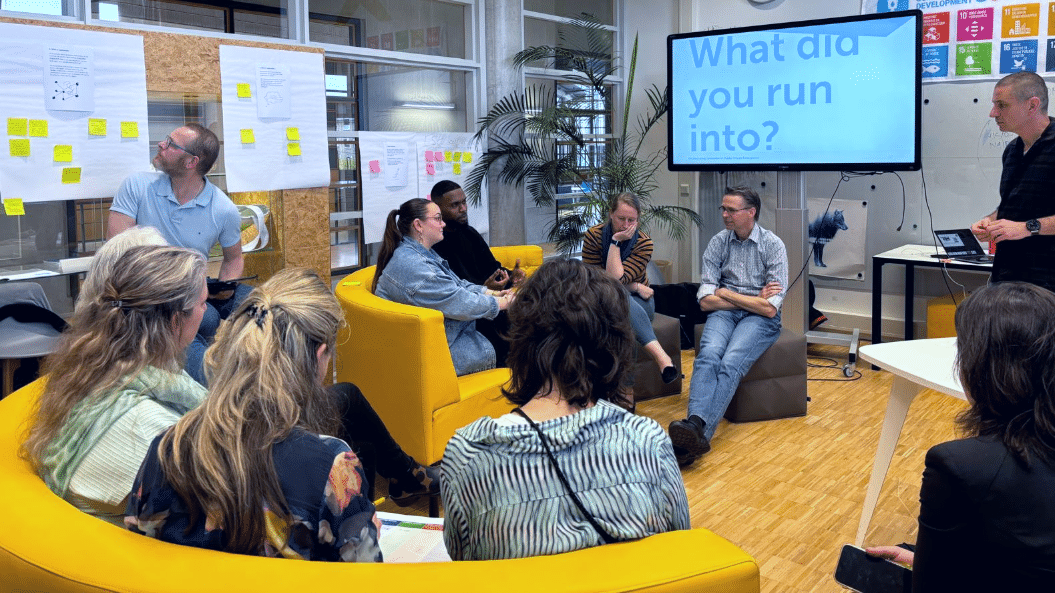In the ESCalator on April 12, Frank Berkers (from ESC network partner TNO & Rotterdam University of Applied Sciences) took us through TNO‘s Orchestrating Innovation approach and the associated course. This revolves around the design and realization – systemic co-design – of an innovation network aimed at social impact. This approach has been developed to achieve substantial scaling up of innovations. Many innovations remain stuck in small scale, trial and fragmentation.
In the Orchestrating Innovation approach, successful scale-up is referred to as going ‘above the line’. Frank emphasized the responsibility of those working ‘below the line’ to contribute to this upward movement. One of the important perspectives within Orchestrating Innovation is to view an innovation network from a business perspective: which services can be provided to which stakeholders, which underlying pain can be alleviated?
The participants worked in groups with the innovation hubs in which they are active, using one of the instruments developed for this purpose: the Service Assessment Canvas. We noticed that this offered a helpful perspective for our own practices. For example, one of the groups further developed the ESC network using this canvas. ESC lecturers Liliya Terzieva (The Hague University of Applied Sciences) and Remko van der Lugt (Utrecht University of Applied Sciences) reflected with those present on what was learned in this Escalator and the relationship with Systemic Co-Design, and the learning questions that concern us within ESC.
We found that the Orchestrating Innovation approach shows particularly well how systems thinking with a business perspective can complement the co-design work that takes place in innovation hubs focused on transition. And how it points us to the responsibility to contribute to the movement ‘above the line’. We discussed the role of Orchestrator, who in TNO’s approach is a central person – and sometimes a small team – who keeps an overview and can make adjustments. This role is particularly demanding, especially in a large innovation network. This resulted in a conversation about what you as an individual can achieve in systemic co-design and what collaboration requires.
In the analogy of making music, a juxtaposition was made: making music together as a centrally managed orchestra versus an interacting and ‘jamming’ group of musicians. In addition, we discussed how a Future Thinking approach could be complementary to such an approach that primarily starts from the now. It would be great if in such an approach we could introduce a new way of looking at things, where, for example, making a profit is no longer the standard.
Frank Berkers is lecturer in Business for Societal Transition at Rotterdam University of Applied Sciences and lead scientist for networked business models at TNO Vector and developer of the Orchestrating Innovation approach.
